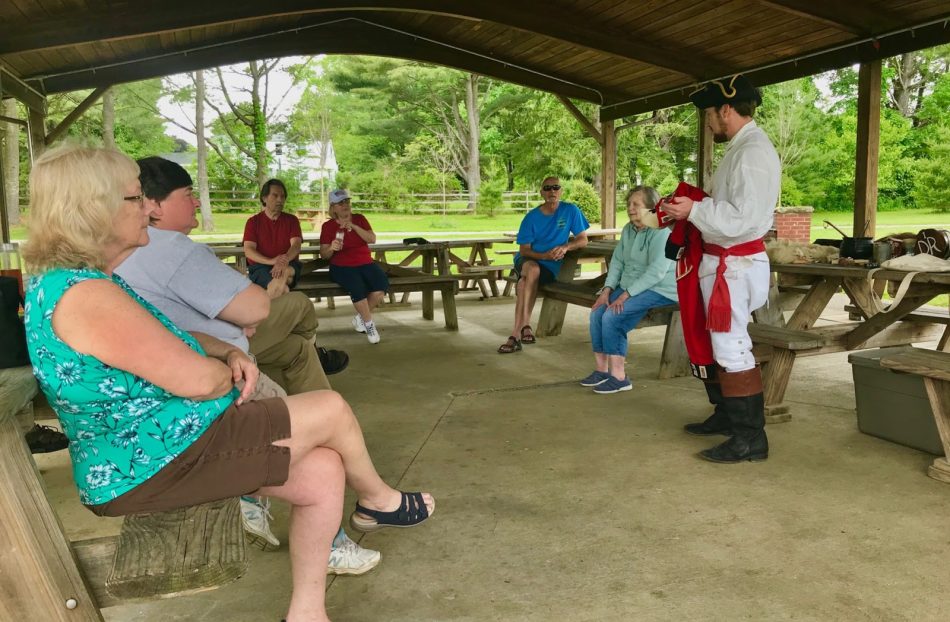
When diagnosed with dementia or Alzheimer’s disease, there are few outlets or social support systems available to minimize the feelings of isolation that come with declining cognitive function.
That is, until 2011 when Lori La Bey, founder of Alzheimer’s Speaks, an organization that advocates for Alzheimer’s awareness, established one of the first memory cafes in America in Roseville, Minnesota.
Despite the name, memory cafes are not coffee shops but groups that provide an outlet for individuals living with memory loss and their caregivers to gather and socialize in a judgment free environment with those experiencing similar situations.
After watching her once lively and social mother refrain from gatherings in fear of embarrassing herself as her Alzheimer’s progressed over the course of nearly 30 years, La Bey sought to create a space where those diagnosed can comfortably gather and socialize with people in a similar situation.
“I personally believe social engagement is probably one of the most powerful tools we have to slow the decline in this [disease],” La Bey said.
Over the course of 10 years, memory cafes have expanded across the country, with 28 located in Pennsylvania alone.
In 2017, the United Methodist Church of West Chester decided to provide an outlet or program for those experiencing memory loss and, after much research, grew inspired to create their own memory cafe, called the Sunshine Memory Cafe.
Anyone at any stage of their diagnosis, as well as anyone’s partner or caregiver, can attend the weekly meetings.
According to Adean Bridges, coordinator of the Sunshine Memory Cafe, every cafe is different.
Those at the Sunshine Memory Cafe tend not to introduce or label those who attend as volunteers or attendees because the meetings are intended to distract from the overwhelmingness that is memory loss.
“We don’t talk about dementia,” Bridges said. “We try to offer a time when they can get away from that.”
According to Bridges, keeping individuals engaged is key.
“We usually spend the first 20 minutes or so chit-chatting with each other and serving refreshments, and then we’ll have a program, game, craft, whatever we’ve come up with that sounds fun and/or interesting,” Bridges said.
In years prior, the Sunshine Cafe would go on field trips to sporting events, have guest speakers or artists come and interact with attendees, paint, and create art pieces, but once COVID-19 struck, all gatherings and events were halted.
Although they could not gather in person, the Sunshine Cafe, as well as all other memory cafes across the United States, began hosting virtual meetings. While it was not the same, the social aspect — even from behind a screen — helped many, Bridges said.
By summer of 2020, the Sunshine Cafe was able to host socially distant in-person meetings at a local park.
In-person meetings have now resumed, and on June 1 the cafe had a Revolutionary War soldier share stories, fun facts, and insights of what it was like to fight and live during that time.

Attendees asked questions, joked with the re-enactor, played games, and engaged in activities popular during that era such as pickup sticks, and ring toss. Those attending also had a chance to create whirligigs with string and large buttons.
Although intended to distract people from everyday worries, these social interactions aid in restoring or maintaining one’s cognitive function, according to the Alzheimer’s Association.
“It gives them, you know, a chance to make friends and socialize with those friends and get different experiences,” Bridges said.
According to a 2019 research study on one’s social engagement before and after dementia diagnosis, one’s means of social interactions decrease significantly after diagnosis, likely because friends and relatives do not understand the disease or know how to support those recently diagnosed. For these reasons, memory cafes are vital.
Tom Brophy was diagnosed with Alzheimer’s at age 62 after experiencing memory loss at his place of work. He is what’s known as an Alzheimer’s Ambassador, someone who attends events for Alzheimer’s awareness and advocacy and speaks on their personal experience. Brophy’s own experience showed him that social interactions help combat isolation and maintain one’s mental health and well-being.
“It was helpful for me,” Brophy said. “Getting out and being with people and engaging tremendously.”
Although there is no cure for Alzheimer’s, studies suggest a change in diet, regular exercise, and social interactions help keep one’s cognitive function at a steady rate. However, the latter suggestion is often difficult to practice even with programs like memory cafes.
According to Bridges, it is difficult to get people interested in attending meetings and, once they are, it then becomes more difficult to gain full attendance for, as one progresses with the disease, they often forget dates, plans, and lose track of time.
However, for those who are early on in their diagnosis and are able to attend, the impact is tremendous.
“It was their lifeline, that’s where they got recharged,” said La Bey regarding conversations with former memory cafe attendees.
For people like Brophy, a self-proclaimed introvert, social engagement is hard, but knowing he had a place like the Sunshine Memory Cafe to turn to each week and engage with people like himself had an immense impact on his health and well-being.
“I look forward to the memory cafe every week,” Brophy said. “Just the camaraderie of different people and we all have the same issues. That engagement to me is very gratifying.”
– Please email any questions or concerns about this story to: [email protected].
Editor’s note: Our special reporting on COVID-19 may focus on communities outside Philadelphia because many of our student journalists are now temporarily located outside of the city. Instead, our reporters will cover how the coronavirus is impacting their own communities from across the country and around the world. We will return to hyperlocal coverage of Philadelphia’s neighborhoods as soon as possible.


Be the first to comment